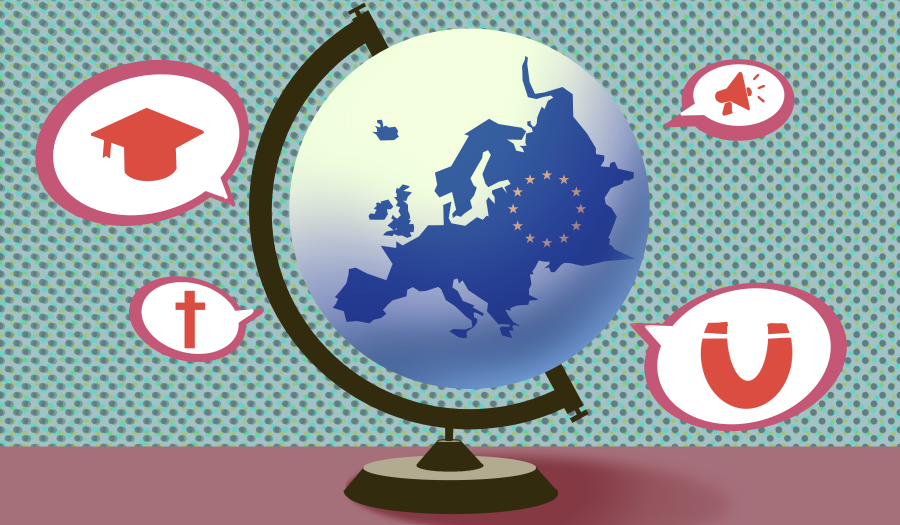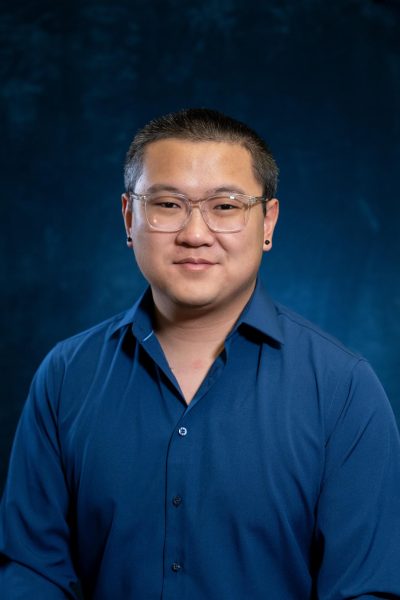During the early stages of the pandemic, the Western world was frightened of Covid-19, but for the wrong reasons, exoticizing the pandemic and placing blame onto countries for practices that are normal for them. The virus was immediately painted in cultural terms, framed in an antagonizing narrative of a threat “coming from afar.” This type of thinking is a result of Eurocentrism, the practice of interpreting the world in terms of European or Anglo-American values and experiences which suggests an otherwise imbalanced representation and view of cultures.
Eurocentrism has infected the Western understanding of the world and seemingly altered the reality we live in. From education to politics to science, our narrow understanding of how the world operates leaves us blind and ignorant to life outside the Western world.
Researchers deduct that this issue was a result of “European colonialism and global domination by Western powers.” Arun Kumar Pokhrel, a specialist in contemporary British and global Anglophone literature and postcolonial environmental theory, published a paper in 2011 explaining how “the process of Europeanization intensified once Europe became capitalistic and developed the power to conquer the other parts of the world.”
Our country’s reaction to the Covid-19 pandemic became the epitome of Eurocentrism. As racist incidents against Asians began increasing, China’s responsibility was called into question, referring to the country’s sanitary conditions and culinary traditions.
The pandemic was most alarming for its disturbing intrusion into the intimate life of the Westerner. The paradigm of Western exceptionalism was called into question. Citizens of the West, particularly America, questioned the responses that had been adopted earlier and elsewhere, mask-wearing in Asia, for instance, as too intrusive for their “democratic” lifestyles. While it was very typical to wear a mask in Asian countries even before the pandemic, Americans challenged new Covid-19 guidelines in the name of American freedom.
Additionally, Harvard Law published an article expressing the differences in medical philosophy between Europe and the Global South and how those differences lead to a Eurocentric international response to the pandemic. In concentrating on Western conceptions of health, ideas that are focused on individual life expectancy and the prevention of diseases, there was insufficient response paid to realities in the Global South.
Essentially, the Western conceptualization of health within the World Health Organization ignored the factors that non-Western countries take into consideration when addressing health and safety issues such as “environmental contamination and degradation; physical and economic determinants of health care access; inequality in health care access; physical and psychological harm; poverty; availability of potable water, foodstuffs, crops, and livestock during armed conflict; and lack of drinking water, electricity, and medicines.”
In education, Eurocentrism has essentially rewritten history, painting European culture and its descendants as the main characters, when in reality the world is much more nuanced than that. For example, in 2015, McGraw Hill was called out for publishing a geography textbook with misleading information about immigration and slavery.
The specific page that was called into question only had an introductory summary and three text bubbles. Issues arose with one bubble in particular. Pointing to a patch of purple grids extending throughout the country’s Southeast corridor, the one-sentence caption reads: “The Atlantic Slave Trade between the 1500s and 1800s brought millions of workers from Africa to the southern United States to work on agricultural plantations.”
Roni Dean-Burren, a mother of one of the students who possessed one of these textbooks, took to social media, posting a video that has been viewed nearly two million times.
“It talked about the U.S.A. being a country of immigration, but mentioning the slave trade in terms of immigration was just off,” she told The New York Times. “It’s that nuance of language. This is what erasure looks like.”
The reality of the stories is distorted to fit a Eurocentric point of view. But the retelling of these narratives creates a false reality, minimizing the struggles and prejudices people from other countries faced in the past, as well as the issues that plague our modern world.
There is a saying that goes: “History is always written by the winners.” But, now, it is finally time for the whole story to be written.
Closer to home, the five-course Humanities writing sequence at Roger Revelle College only covers European history and its authors. Focusing on Catholicism and European authors. While these writers and experiences are still important, “Humanities” should encompass a wider range of themes and authors, not just the European.
The Revelle website states that in the Humanities sequence, “Students examine the development of a wide variety of ideas and forms of expression that exert a major influence on modern America.” However, is there truly a “wide variety of ideas” that “influence modern America” if those ideas are only focused on Europe?
The world thinks the European and Anglo-American way of life is the only “right” way.
We need to acknowledge that our history books and preconceived notions are formed from a Eurocentric perspective. Then, make sure the voices and stories of the silenced part of the world are heard, especially in European and Anglo-American dominated regions. Introducing authors of color and dismantling the Eurocentric curriculum are key in challenging the systematic Eurocentric behaviors we are taught.
For Americans, Eurocentrism is deeply rooted in our systems and behaviors, and the only way to grasp a more open-minded, diverse, and worldly understanding of the cultures and people around us is to challenge the way information is presented and dismantle the notions made before us.
Art by Nicholas Regli for the UCSD Guardian.
















